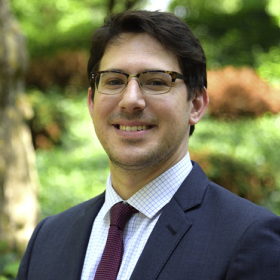Looking Back And Looking Ahead: The Future For Heartbeat Health
Back in 2017, nearly a decade into my clinical training, I had just finished a difficult overnight cardiology shift managing critically ill patients with advanced cardiovascular disease. As I rode the New York City subway back to my upper west side apartment recounting the patients I had managed, and the decisions I had made that night, a lingering thought began growing. “There had to be a better way to reach patients, before they get so sick.”
As a practicing cardiologist, the majority of care I have been privileged to provide in the past 10 years has been focused around advanced illness–patients with existing heart disease. These patients typically need care in order to reduce risk for worst case scenarios – including intense suffering or staving off death. This is incredibly valuable work that has been built on decades of data-driven research and alleviated the burden of cardiovascular disease for tens of millions of people.
However, for years working in academic health systems, this practice of caring for advanced illness has become somewhat paradoxical to me. While it’s critical to spend time and resources on patients in high need, in doing so we give up the ability to spend on those upstream in order to stay ahead of the impending disease. The current practice has failed to significantly shift the focus of its care to earlier, proactive care that manages people before they get so sick. Our health system has historically not been incentivized, nor really capable, of changing this reality.
So, in 2017, Heartbeat Health was born, with a core mission to change the way cardiovascular care is delivered.
We started with a simple idea, and a small office in a run down office building in Columbus Circle in New York – that a modern, tech-enabled experience would make cardiovascular care more accessible, and better, for patients. As the practice grew, and patients came through, our growth was tempered by the fact that we weren’t connecting with the right people – patients with significant cardiovascular risk or disease who needed us more than the ‘worried well’ modern healthcare fan. So we shifted our business model as we realized proving clinical outcomes over time was where we could make a bigger and more impactful difference.
We have now developed a Virtual-First approach that uses technology and virtual care to improve the access, quality, and outcomes of cardiovascular disease. By delivering Virtual-First cardiology, we are able to provide connected care through remote diagnostic testing, televisits, referrals and data analytics that cares for patients in every state in the US, across every cardiac condition, and at every level of severity.
Over the years, after some difficult, but necessary pivots, we’ve finally landed, with a model that works, that is repeatable, and has a large potential for growth.
If we break down Heartbeat’s long-term vision into 3 primary stages, Heartbeat is currently in Stage 1: growing our virtual cardiology services footprint as widespread as possible, as a service provider to value based care partners, and usually in a fee-for-service pricing model. In doing so, we’re growing a dataset and generating evidence that demonstrates our outcomes produce cost savings and deliver high quality care .
Stage 2 is all about taking risk on our outcomes, delivering higher quality results at lower costs and sharing in those savings. And finally, Stage 3 is to add back the ‘terrestrial’ footprint that provides true hybrid cardiovascular care and that is needed to inflect larger cost savings in a value based ecosystem.
While our new model requires execution across many complex moving parts, and with many existing stakeholders with different incentive structures, I’m confident that it will work, and optimistic that we will get there.
Beyond Heartbeat, we’re living through a critical moment for the growing health-tech ecosystem at large. The pivotal question – do new tech-enabled interventions demonstrate clear and proven clinical outcomes for specific at-risk populations? This needs to be assessed and answered in order for our space to succeed and join the daily practice of medicine for clinicians and patients. This is the road we’re paving at Heartbeat and the future is bright.

Cardiologist, Founder, CEO at Heartbeat Health